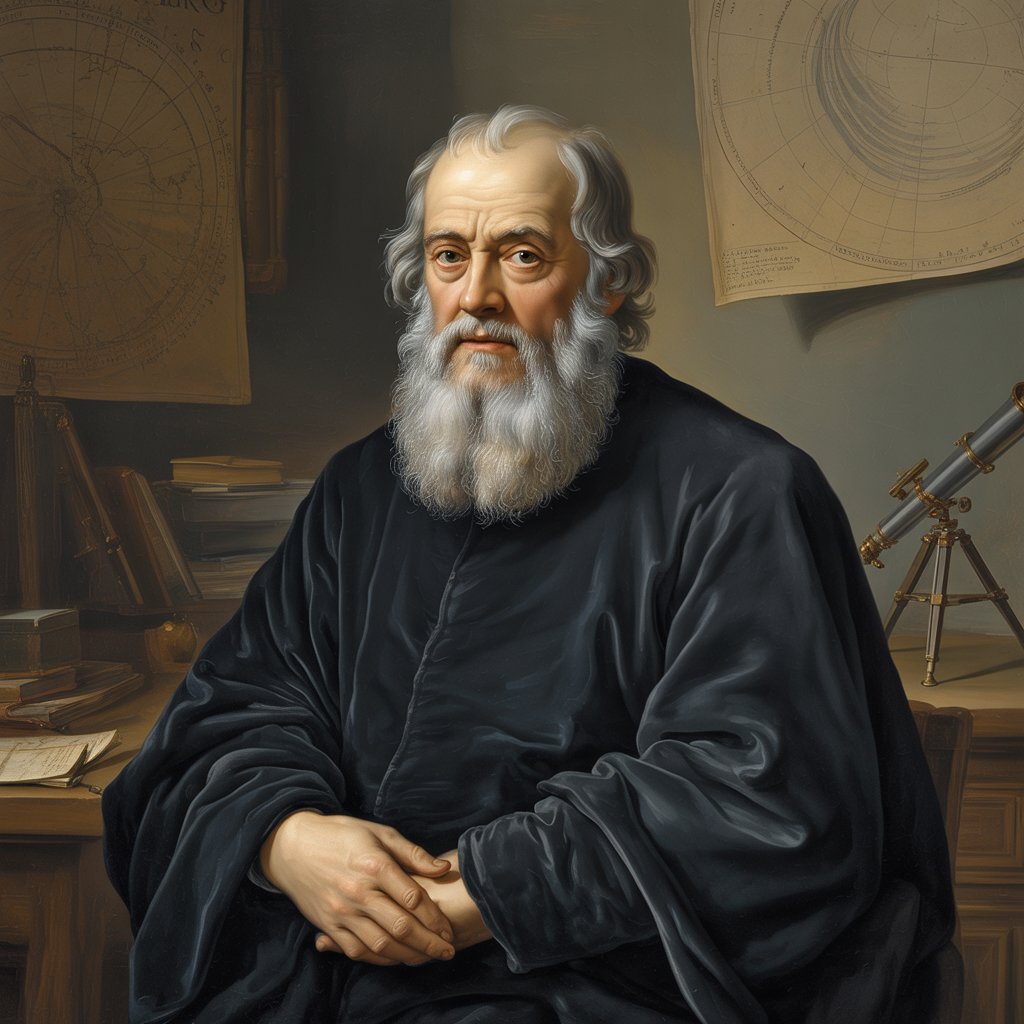Copyright © 2025 - TheBuzzFever
Galileo Galilei is widely recognized as the father of modern science due to his groundbreaking contributions in physics, astronomy, and scientific methodology. His work laid the foundation for modern scientific inquiry, emphasizing observation, experimentation, and mathematical reasoning. By challenging established beliefs and pioneering new approaches to understanding the universe, Galileo played a crucial role in shaping the scientific revolution.
Galileo’s Contributions to Modern Science
Galileo’s influence on modern science is vast and transformative. One of his most significant contributions was his development of the scientific method, which prioritized observation and experimentation over traditional philosophical reasoning. This approach became the foundation of modern scientific inquiry, influencing generations of scientists.
1. Revolutionizing Astronomy
Galileo’s work in astronomy was revolutionary and earned him the title of the father of modern science. In 1609, he improved the design of the telescope, allowing him to make unprecedented astronomical discoveries. Some of his most notable findings include:
- Jupiter’s Moons: Galileo observed four large moons orbiting Jupiter, proving that not all celestial bodies revolved around the Earth. This directly challenged the geocentric model of the universe, which held that Earth was the center of all celestial motion.
- Phases of Venus: He documented the changing phases of Venus, which provided strong evidence for the heliocentric model proposed by Copernicus.
- Lunar Surface: Contrary to the prevailing belief that celestial bodies were perfect and unchanging, Galileo’s detailed observations of the Moon’s surface revealed mountains and craters.
- Milky Way’s Composition: He discovered that the Milky Way was made up of countless stars, vastly expanding the understanding of the universe.
These discoveries directly challenged the long-held Aristotelian and Ptolemaic models of the universe, leading to intense resistance from religious and academic authorities. However, they also laid the groundwork for the acceptance of the heliocentric model and modern astrophysics.
2. Contributions to Physics and Mechanics
Beyond astronomy, Galileo made substantial advancements in physics, particularly in the study of motion and mechanics. His experiments and mathematical formulations fundamentally changed the understanding of motion, influencing later scientists such as Isaac Newton. Some of his key contributions include:
- Law of Inertia: Galileo was among the first to articulate the principle of inertia, stating that an object in motion remains in motion unless acted upon by an external force. This principle later became Newton’s First Law of Motion.
- Acceleration Due to Gravity: Through experiments, including his famous (though possibly apocryphal) dropping of objects from the Leaning Tower of Pisa, Galileo demonstrated that all objects fall at the same rate regardless of their mass, disproving Aristotle’s earlier assertions.
- Parabolic Motion: He discovered that projectile motion follows a parabolic trajectory, an insight crucial to modern physics and engineering.
- Pendulum Motion: His studies on the pendulum’s motion led to innovations in timekeeping and laid the groundwork for the development of more accurate clocks.
Galileo’s approach—combining experimentation with mathematical analysis—revolutionized physics and solidified his legacy as the father of modern science.
3. The Conflict with the Church and Legacy
Despite his scientific achievements, Galileo’s ideas faced significant resistance, particularly from the Catholic Church, which adhered to the geocentric model. His advocacy for the heliocentric theory, based on his astronomical observations, led to a famous confrontation with religious authorities.
- 1616 Condemnation: The Church declared the heliocentric model heretical, forbidding Galileo from promoting it.
- 1632 Publication of “Dialogue Concerning the Two Chief World Systems”: In this work, Galileo defended heliocentrism and indirectly criticized the Church’s stance, leading to his trial.
- 1633 Trial and House Arrest: Found guilty of heresy, Galileo was forced to recant his views and spent the rest of his life under house arrest. However, he continued his scientific work, including studies on motion and strength of materials.
Galileo’s conflict with the Church did not diminish his impact. Over time, his ideas gained widespread acceptance, ultimately leading to the scientific revolution. In 1992, the Vatican formally acknowledged its error in condemning Galileo, further cementing his status as the father of modern science.
Conclusion
Galileo Galilei’s contributions to astronomy, physics, and the scientific method mark him as the father of modern science. His pioneering work challenged existing beliefs and set the stage for the development of modern scientific principles. Despite facing opposition, his discoveries and methodologies have had a lasting impact on science and humanity’s understanding of the universe. Today, his legacy continues to inspire scientists, proving that the pursuit of knowledge is unstoppable.

